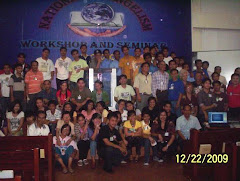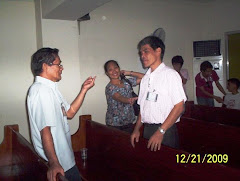 Two sets of twins, one Spanish, the other Chinese, have kind of sorted their own lives, rectified human errors that caused their separation at birth, and sued their hospitals for damages.
Two sets of twins, one Spanish, the other Chinese, have kind of sorted their own lives, rectified human errors that caused their separation at birth, and sued their hospitals for damages.The Chinese twins are suing a Beijing hospital because an alleged mix-up (hospital’s fault, so they say) had led to their separation for two decades, with one of them believing he was someone else’s identical sibling.
On the other hand, the Spanish twins (no names given, but they are women) who got separated at birth by nurses’ error and reunited by chance 35 years later are also suing the state-run Canary Island hospital for damages.
In both the Spanish and the Chinese cases, the “twins” had been brought up under the wrong belief that they were twins. Both sets of twins felt affected, saying “their world has turned a bit upside down.” Both sets have grown up separately, and sought kinship connection to the twin that he or she has lost.
But take this other case of twins who grew up under one roof, who competed with each other for parental favors, with the competition getting so nasty, the rules of the game becoming so unprofessional you could imagine them going at each other’s throats!
It began when a Middle East couple pleaded for a child, just one, because even after many years of marriage they had no child. But the joy of her pregnancy became the trouble of her heart. It seemed as though children—not just one child— were fighting inside her womb! (That early, the fetuses were already at each other’s throats!) “I cannot endure it,” the wife said. “This cannot be just morning sickness!” So she came to inquire of God. And she was told this:
“There are two boys in your womb, and they are actually two rival nations. They will compete with one another, they will fight. One will be stronger than the other; and the older shall become a servant of the younger.”
And sure enough, she had twins. The first was born so covered with reddish hair that one would think he was wearing a fur coat! They called him “Red,” but oftentimes he was known by the name “Hairy.” The other twin was born with his hand on the older boy’s heel; they named him “The Grabber.” Their father was sixty years old when the twins were born.
The boys grew up outsmarting each other. The older boy became a skillful hunter; the younger stayed at home, being the quiet sort, and trained to become a good cook. Just here you could say the skill of one could be a complement to the other: “You do the hunting, I’ll do the cooking!” But it did not. The older was the father’s favorite (who would think that with venison you could find your way to your father’s heart? But he did). And the younger became the apple of his mother’s eye.
The younger boy is actually one of the most important characters. You may not be attracted to him after seeing the worst side of him. He was not just a supplanter, a grabber, he was also a deceiver, “the man who drove a hard sharp bargain at the expense of his own brother, taking advantage of the older brother’s weakness to gratify his covetousness.”
I understand that the older brother did not offer to sell his birthright; he asked of his brother a kindness, to satisfy his hunger. It was the younger brother’s chance to play the part of the sympathetic twin but he did not; instead he took the opportunity to seize what was not his. The older brother was willing to barter the most important of all to escape a temporary discomfiture. “When a man is dying of starvation,” he said, “what good is his birthright?” By his shortsightedness he allowed himself to be defrauded. In the language of one preacher, “He traded eternity for a bowl of soup.”
One despicable act led to another. And to secure the blessing of the father who was almost blind, the younger brother got the help of an equally deceitful mother. “Your hairy skin tells me you’re my favorite son, but your voice tells me you’re not,” the father commented. The physical can be deceiving. Anyway, he asked that his favorite steak be brought in. And the grabber got what he wanted.
If you read the narrative, many years later his sins came to haunt him. In the parlance of Robert Southey, the writer, “The chickens came home to roost.” He too was cheated of his wages, of his first option to marry the woman he loved, of his shares as a tenant in the ranch farm his father-in-law owned.
Well, some may discredit the younger boy for his smallness and meanness, but we must appreciate the true and the strong about him, his foresight, his appreciation of what the birthright could bring, and his fine sense of values. The Bible values these as most important.
Two brothers, two siblings. While they lived under one roof, they also grew up separately. They were just two in the family, but it looked like their home became too crowded with them. Under that circumstance, the motherly advice worked best: Separate, you guys, or I will die early. Years later the twins met in a tearful reunion, each one forgetting each other’s hurts and pains.
Either Jacob or Esau could be like some of us. Members of the one family of God, the church. Spiritual siblings who don’t like each other and seem to be always at each other’s throats. My advice to these brethren: Grow up separately. Learn to forget the past. Overlook the faults. Bloom in the place where the Lord has planted you. Someday, when circumstances are good, your paths might cross, and you might learn to like each other again. Prepare for life hereafter. As my grandson Jacob, 7 years old, when asked would often say pointing to heaven: “There are no people fighting up there.”



































No comments:
Post a Comment